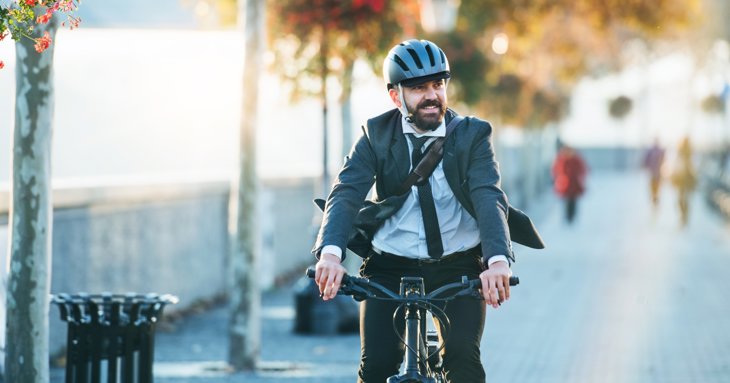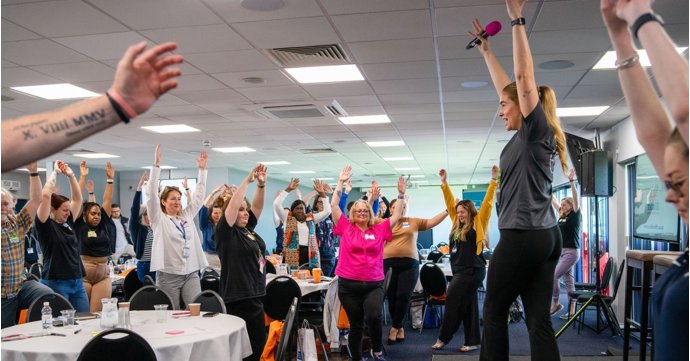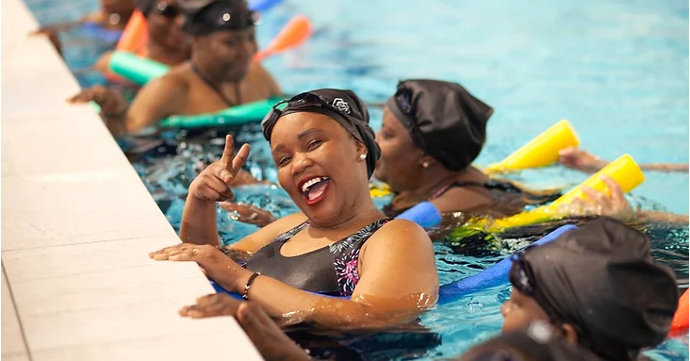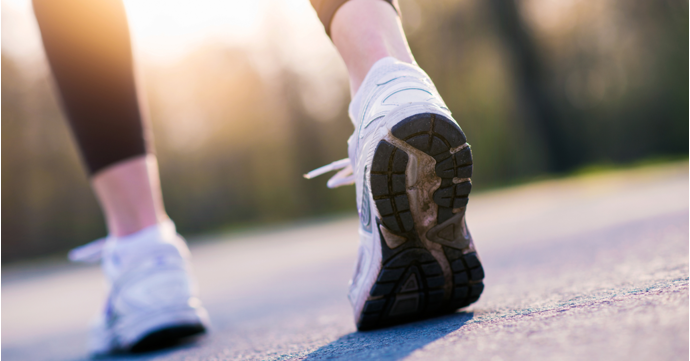Start small and pretty soon you’ll make a big difference to your physical and mental health, according to Active Gloucestershire.
SoGlos spoke to Active Gloucestershire’s senior project officer, Chris Davis, about some of the easiest ways to build more activity into your daily routine – and start feeling the benefits straight away.
About the expert – Chris Davis, senior project officer of Active Gloucestershire
Chris Davis is senior project officer of Active Gloucestershire, a charity aiming to support and encourage people to add more activity into their daily lives.
Active Gloucestershire – which is part of a national network of Active Partnerships driving positive change across England – launched its We Can Move campaign on Monday 4 July 2022, to help inspire Gloucestershire residents to become more active and to empower people to enhance their lives.
For more information, visit activegloucestershire.org.
If you wanted to start small, what are some of the easiest ways to add some activity to your day?
A great way to start is to add activity to things you already do. Whether it’s housework, gardening or making a journey, a little extra movement goes a long way.
Listening to some music, dancing while you vacuum and generally having fun while you do your daily activities will amount to more than you think and have a big impact on your health.
You can also think about the way you get around. You might park further from your destination if you normally drive, use more public transport where possible, or walk your children to school a couple of times a week as a start.
It also helps to anchor activity to existing habits or tasks. You could do some gentle stretching while you wait for the kettle to boil, balance on one leg while you brush your teeth, or move around the house while dinner is cooking.
However you decide to move, the key is to begin with something manageable and not put pressure on yourself to do more than you feel comfortable with. If you go for a short walk you might decide to just walk to the end of the street and venture a little further each time.
Make a note of what you have done or tell your friends and family about your achievements. You never know, it might just encourage someone else to join you.
Are there particular activities that are really beneficial for the body and mind?
Any activity to increase your rate of breathing slightly is great, but particularly activities that focus on strength, balance and coordination.
It’s important to do something you enjoy, but activities such as walking, gardening, yoga, tai-chi or even lifting weights are all fantastic activities for body and mind.
What activities are good for older people or those with mobility issues?
Gentle activities that focus on strengthening muscles and balance are great for older people.
Slowly raising up from a chair a few times, using the kitchen counter to balance on one leg or holding onto a chair and raising your heels are all great activities for strength and balance.
Even staying seated and marching on the spot or moving your upper body can help to build strength, coordination and keep you more mobile.
The key here is to begin with a small number of repetitions and build up as your confidence and energy will allow.
What activities are helpful for people who feel there are never enough hours in the day?
Focus on adding activity to what you already do or build activity into your work/life routine. Short walks, home work-outs and being active while you work or travel are simple ways to increase activity without making big changes to your day.
If you can squeeze activity in before or after work, it helps to have things ready to go. It might sound trivial, but putting your walking shoes by the door, having your kit bag packed or comfortable clothes ready to go, saves wasting time searching under your bed for that missing trainer or rushing to get your things together before you head out.
Even taking a break away from work or chores to do a few minutes of gentle activity has a big impact on focus, energy and physical fitness.
What kind of everyday activities might people be surprised can help them feel better?
As little as 10 minutes of walking or movement can have huge benefits for our cognitive function, physical fitness and mental health.
Not only is walking accessible to most people, it is considered one of the simplest ways to build activity into daily life. It might surprise some that even carrying shopping, taking the stairs and more times moving from sitting to standing can significantly improve muscle strength.
How easy can it be to add activity to your day?
Adding activity to your day can be as easy as you want it to be. Starting small, linking it to other routines and being more mindful of how you work, travel and move is all it takes to increase your overall activity levels.
But, that said, we all need support sometimes and may not always feel like doing it. So be kind to yourself, share your experiences with others and take the time to reflect on how different you feel from even a small amount of physical activity.
Don’t forget that you don’t always need to make the activity the focus – it could be the by-product. Dancing, performing, enjoying nature and hobbies are highly likely to involve physical activity, making it easier to see where there may be more opportunities than you think.
Are there any activity myths you’d love to bust?
‘The only way to get fit is in a gym’ – a gym is just one of many ways that people enjoy to increase their activity and fitness.
‘I can’t be active with a long-term health condition’ – while professional guidance is sometimes needed, physical activity is safe and beneficial for most people living with well managed long-term conditions.
‘Sitting is bad’ – sitting is a natural part of life (and for some isn’t a choice), but what is important is how we sit. Regular movement, breaks from sitting or changing position is likely to be more beneficial to our physical and emotional health than staying stationary.
‘There’s a ‘best time’ to be active’ – what’s more important than ‘when’ is how regularly we do it and how well we stick to it. So, changing our behaviour and finding enjoyable ways to be active, social and improve general well being are more likely to keep us doing it, making the ‘when’ we do it less important. In other words, do what works for your individual context, place and space.




















